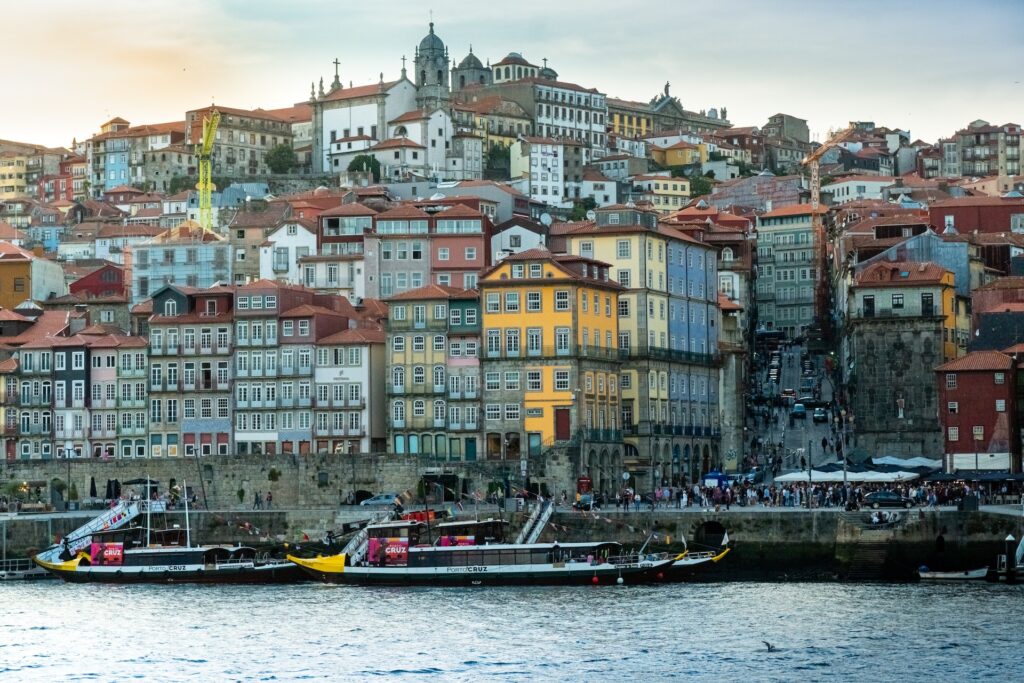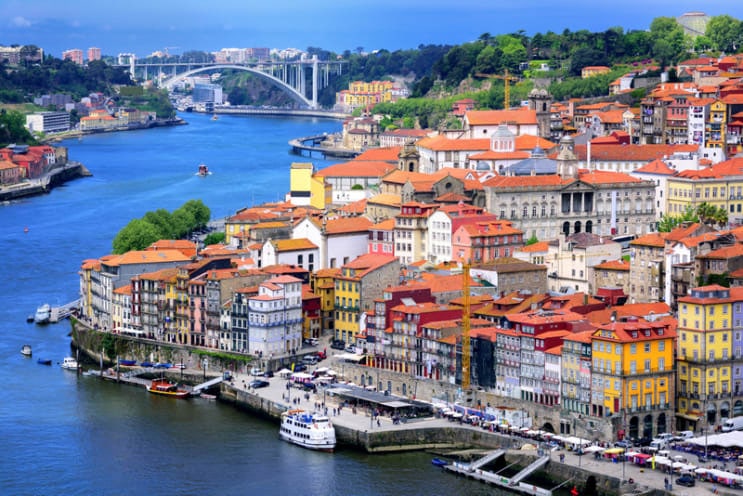Moving to Portugal is an amazing experience, but it’s important that you do your research ahead of time. You should consider what type or visa category will work best for living in the country and how much time you plan on spending there once approved by authorities so as not to give yourself any surprises upon arrival!
The small yet diverse nation has plenty going right–friendly locals who love their food (Portuguese cuisine isn’t just limited to wine), scenic landscapes guarantee breathtaking views from every corner… But before making this big decision remember: to address issues like Portugal Visa types & requirements early.
Portugal has many different residence visas for visitors, workers, and immigrants. There’s a visa that will suit your needs with all sorts of restrictions – from one-time visits to permanent residency! In this blog post, we’ll discuss what type is right for you. Keep reading!
Who needs a Portuguese residence visa?
The following people need a Portuguese residence visa to stay in Portugal for more than 3 months:
- Foreign nationals who are not European Union (EU) citizens
- Spouses and children of EU citizens, if they are not themselves EU citizens
- Nationals of countries visa-free access to Portugal for stays of up to 90 days
There are two systems for citizens of different countries, depending on if they’re from the European Union (EU) or another organization called EFTA – but it can be tricky knowing which one applies to you!
European Union (EU)/ EFTA
With a visa-free entry policy for all EU/EFTA citizens, as well as certain family members and relatives even if they are not from the Union themselves.
However once hired has rights to work in Portugal just like any other locally born citizen would have – with no restrictions on employment or business creation whatsoever!
The country also falls under the Schengen Area which is an area made up of 26 European countries with no border controls between them. A citizen can travel freely from one country to another without having their passport, and they only need identification documents when entering Portugal as well!
Additionally-EU /EFTA citizens have access rights that allow them temporary residence here; however, these people must request either registration certificates if staying longer than three months or permanent relocations after five years.
Non-EU/EFTA Nationals
The Portuguese government is aware that many countries have agreements with them which means their citizens don’t need a visa for short stays.
This includes 61 international locations including Australia, Canada, and Japan among others! Non-EU or EFTA nationals seeking to stay in Portugal for more than three months Must need to apply for a residence permit for further stays.
It has been reported that UK citizens are also included in this after the implementation of Brexit.
Types of Residence Visa
There are a few different types of Portugal residence visas available, which are described below.
Temporary Residence Visa
A temporary residence visa is a visa issued to a foreigner who does not meet the requirements for a permanent residence permit, but who is allowed to stay in Portugal for a certain period. There are several types of temporary residence visas, each with its requirements:
Student Visa/ D4 & D5 Visa
This visa is for foreigners who are studying in Portugal. To apply for either of these visas, you’ll need to be accepted into a Portuguese educational institution and prove that you have enough financial resources.

The D4 Visa is designed for short-term courses while the other offers long term opportunities so it’s important not just to fill out an application form but also secure funding ahead of time!
Portuguese universities are amongst the best in Europe and provide excellent education. After experiencing life here, many students want to become residents or return regularly for vacations because they know that Portugal’s quality of living is second-to-none!
A huge advantage with studying in Portugal at a private university? You can study English so it won’t matter if your vocabulary isn’t 100% Portuguese – most courses will be taught entirely through this language anyway.
Work Visa/ D1 Visa
With a Portuguese Work Visa, you can come to Portugal and work for a brilliant company. Whether it’s in the industrial or economic hub of Lisbon/Porto; there will be opportunities waiting!

Medical Treatment Visa
This visa is for foreigners who need medical treatment in Portugal. To qualify, you must have a letter from a Portuguese doctor stating that you need medical treatment.
To apply for any of these visas, you must first obtain a valid travel document (such as a passport) and then apply to the Portuguese embassy or consulate in your country of residence.
The embassy or consulate will decide whether or not to grant you a visa based on your qualifications and the purpose of your visit.
Permanent Residence Visa
This visa is available to anyone who has lived in Portugal for at least five years on a valid visa, or who has a valid Portuguese residence permit.
To apply for the permanent residence visa, you will need to provide documentation that shows you have lived in Portugal for five years or more, as well as evidence of your income and assets. You will also need to meet certain health and character requirements.
There are a few different types of permanent residence visas available for Portugal, and the process for applying for each one varies. The most common types of permanent residence visas include:
Permanent Residence Visa for Investment/ Golden Visa/ D3 Visa
The Golden Visa is your golden ticket to Portugal. It’s an investment visa that will allow you five years of freedom within the Schengen Area, after which time it can be renewed or even applied for Portuguese citizenship!
This means no more border checks when traveling around Europe. You’re set up with this good stuff indefinitely… But there are some serious restrictions on who’s eligible: only certain individuals may apply (including EU citizens), and they must invest at least €5 million into approved projects here in order to qualify–so make sure not miss out before these slots fill up fast!

To apply for this visa, you must make one of the following investments:
- Create your own Portuguese company with at least 10 new jobs and invest in a solid future.
- Invest €1 million or more in real estate
- Acquire property worth at least 500k lisbon area, such as homes & offices
- Make an investment into scientific research projects by acquiring stocks which will generate income for years down the line (and make sure they’re clean!).
- Invest in the arts and national heritage with a capital investment of €500,000 or more.
- Make a capital investment of at least €350,000 in environmental rehabilitation projects that will improve the quality of life for people living near construction sites.
- There are plenty more opportunities too!
Talk to our experts to know more about Portugal Golden Visa.
Permanent Residence Visa for Passive Income/ D7 Visa
Portugal Permanent Residence Visa for Passive Income is ideal for those who wish to generate income from sources such as investment portfolios or rental properties.
This visa allows holders to live in Portugal indefinitely, and also provides access to the country’s world-class healthcare and education systems. In addition, holders of this visa can apply for Portuguese citizenship after 5th years of residency.

As such, the Portugal Permanent Residence Visa for Passive Income provides several significant benefits for those looking to make a new life in Portugal.
Permanent Residence Visa for Self-Employment/ Entrepreneur Visa/ D2 Visa
This visa is available to foreign nationals who want to start their own business in Portugal.
To be eligible, you must meet certain requirements regarding your business plan and financial stability.
You’ll also need to prove that you have sufficient knowledge of the Portuguese language. Once you have your Permanent Residence Visa, you’ll be able to live and work in Portugal indefinitely.
This visa also allows you to bring your spouse and children with you to Portugal.
Permanent Residence Visa for Employment/ D1 Visa
This visa is available to foreign nationals who have been offered a job in Portugal. To be eligible, the applicant must have a valid job offer from a Portuguese employer.
The employer must also prove that they are unable to fill the position with a qualified Portuguese citizen. In addition, the applicant must have a minimum salary of €1,000 per month and demonstrate that they have sufficient health insurance.
Once approved, the visa is valid for five years and can be renewed indefinitely. After five years of continuous residence, the holder of a Permanent Residence Visa can apply for Portuguese citizenship. As such, the Permanent Residence Visa for employment offers a path to long-term residence and citizenship in Portugal for those who can meet the eligibility requirements.
Permanent Residence Visa for Family reunification/ D6 Visa
One option for Portugal’s residency is the Permanent Residence Visa for Family Reunification, which allows the spouse and dependent children of a Portuguese citizen or resident to join them in Portugal.
To be eligible for this visa, the family member must prove that they have a strong familial relationship with the Portuguese citizen or resident and that they can support themselves financially. In addition, the applicant must have a clean criminal record and must be in good health.
If approved, the visa will allow the holder to live and work in Portugal indefinitely. The family reunification visa is just one of many options available to those looking to make Portugal their new home.
The Requirements and Process of Portugal Residence Visa
The process for obtaining a Portugal residence visa is relatively straightforward, but there are a few things you will need to do to make the application. The first thing you will need to do is find out whether you are eligible for a Portugal residence visa. The following criteria must be met to be eligible:
- You must have a valid passport or travel document
- You must have a clean criminal record
- You must have medical insurance coverage
- You must meet the financial requirements
- You must have proof of accommodation in Portugal
- You may be required to provide other documents as per request
If you meet all the eligibility criteria, then you can proceed with the application process. The first step is to gather all the required documents. The documents you will need vary depending on the type of visa you are applying for, but generally include the following:
- Your passport or travel document
- A copy of your criminal record certificate
- A copy of your medical insurance policy
- Proof of your financial situation (e.g. bank statements, pay slips, etc.)
- A letter from your employer confirming your employment status
- Proof of accommodation in Portugal (e.g. rental agreement, a deed, etc.)
Once you have gathered all the required documents, you can submit your application at the nearest Portuguese embassy or consulate on your own.
However, We recommend you hire a Visa processing agency to complete your file accurately and submit it more efficiently at the government office with the assistance of a Portuguese immigration lawyer.
The application process usually takes around two weeks, and once it is approved, you will be given a visa sticker which must be placed in your passport.
Make sure that you read and follow all the instructions carefully, as any mistakes could result in your application being denied.
To know more, You can contact our visa experts on our contact us page. We will be happy to fill in.
Portugal NIF
The Número de Identificação Fiscal, or NIF, is the unique identifier assigned to individuals and legal entities registered in Portugal. It is used for various purposes, including identification for tax purposes.
The NIF consists of eight digits followed by a check digit. The first seven digits are assigned based on the date of birth or incorporation of the individual or entity. The eighth digit is a check digit, and the final check digit is used to verify the accuracy of the NIF.
The NIF is issued by the Portuguese Tax Authority and is required for various financial transactions in Portugal. The Portugal NIF is important for residence visa because it allows the Portuguese authorities to identify individuals who are residing in Portugal.
This identification number is issued by the Portuguese government and is required for taxes, social security, and other purposes. The NIF is also used to open a bank account, purchase property, and apply for a residence visa. In addition, the NIF can be used to access public services, such as healthcare and education. As a result, the Portugal NIF is an essential piece of documentation for any foreign national who wishes to reside in Portugal.
Benefits of having a Portugal Residence Visa
There are many benefits of having a Portugal residence visa. Some of the most important benefits include being able to live and work in Portugal, as well as having access to all of the country’s social and healthcare services. Additionally, holders of a Portugal residence visa can travel in and out of the country without any restrictions.
- Easier entry into Portugal: With a residence visa, you will not need to go through the same process as tourists when entering Portugal. You will be able to bypass long queues and get through the border more quickly.
- Stability for your family: A residence visa gives your family stability and peace of mind, knowing that they can live in Portugal permanently if they choose to.

- The ability to work: As a holder of a residence visa, you will have the right to work in Portugal without needing any additional permits. This is a great opportunity to gain valuable work experience in a new country.
- Access to social benefits: As a resident of Portugal, you will be entitled to certain social benefits, such as healthcare and education. This is a great way to save money and access quality services.
What happens if my visa application is denied?
The Portuguese Consulate is the final decision-maker for your visa application.
Unfortunately, they have a Variety of Reasons to deny applications and even if you are successful in getting an interview with them – which isn’t always guaranteed by their office policy because there can be delays or unforeseen issues during processing timeframes.
You might still lose out on receiving approval since many other factors come into play when deciding whether someone will receive or refuse visas from abroad .
This means again that, hiring professional assistance through agencies who specialize solely in helping people navigate these complicated processes quickly & seamlessly.
FAQs about Portugal’s Residence Visas
There are two types of residency visas available in Portugal, including the following:
- Temporary Residence Visa: This visa is for foreigners who want to stay in Portugal for a period of up to 90 days. It can be issued for tourism, business, student, medical treatment, or family reasons.
- Permanent Residence Visa: This visa is for foreigners who want to live in Portugal permanently. Available Visas are, Golden Visa, Entrepreneur Visa, Own/Passive Income Visa, and many more
How can I apply for a residency visa in Portugal?
To apply for a residency visa in Portugal, you will need to submit the following documents:
- A completed application form
- Your passport or travel document
- A recent passport photograph
- Proof of your accommodation in Portugal
- Proof of your financial means
- A letter from your employer, if you are applying for a work visa
- And a few more supporting documents when in need
How long will it take to process my residency visa application?
The processing time for residency visa applications varies depending on the type of visa you are applying for. However, it generally takes between one and three months to process a residency visa application.
Want to Apply for Residency in Portugal?
Now that you know which visa to apply for, we’ve got your back! Application processes can be tough but not with the help of our professional team. We will handle everything from filling out forms and tracking them until they arrive at their destination- Portugal’s consulate or embassy in whichever city suits best depending on what type(s)of residency requested; even applying online if needed is no problem thanks again to modern technology today.
Join our Facebook Group to connect with other expats and tourists who have moved or are planning on moving in the near future. You’ll find helpful advice, information about how Move in EU can help save your time & money when relocating abroad – ask questions!





